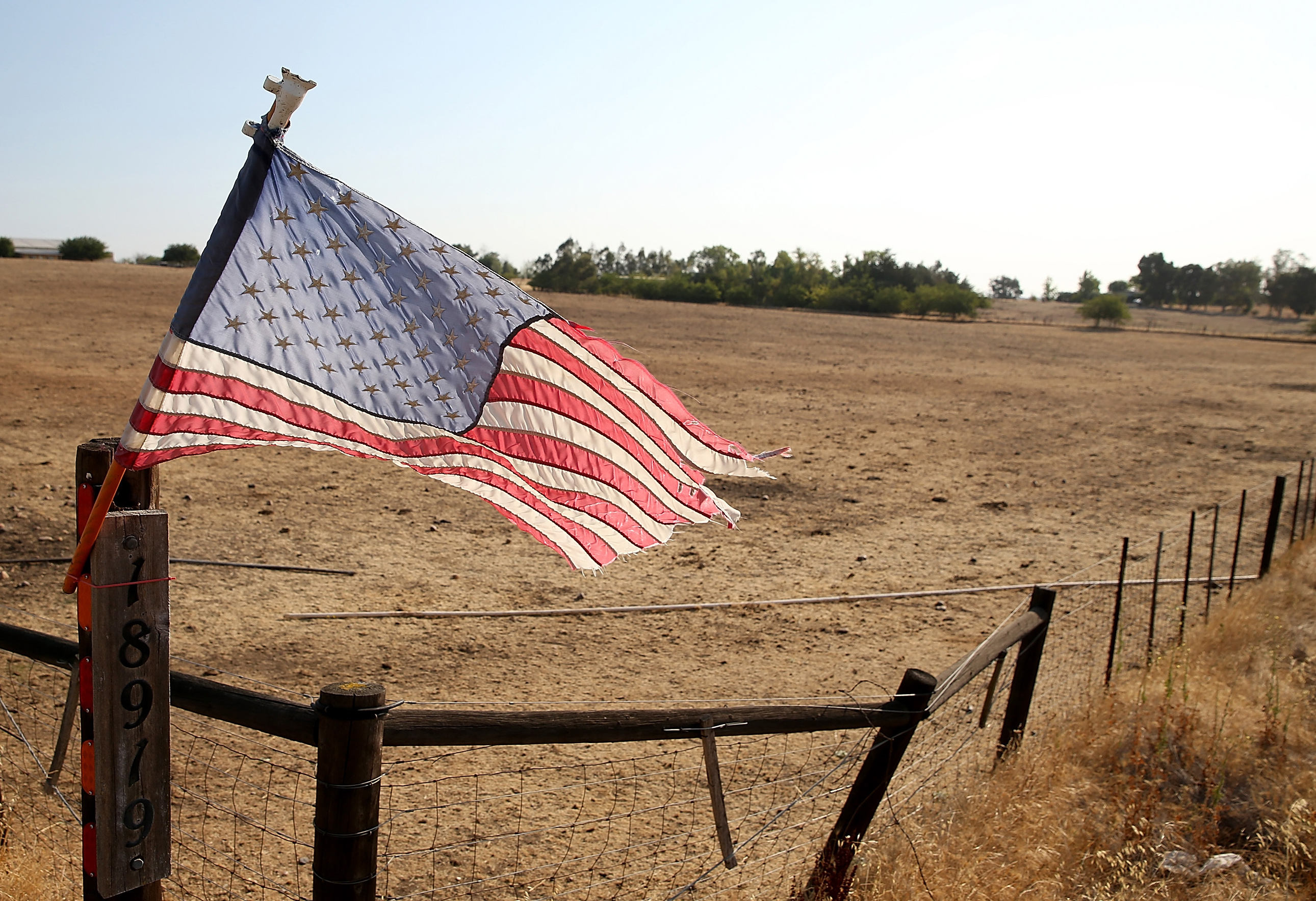The state of climate change politics is very, very bad
As we head into 2016, climate change activists have reason to hang their heads


A free daily email with the biggest news stories of the day – and the best features from TheWeek.com
You are now subscribed
Your newsletter sign-up was successful
As the 2016 presidential election clanks into gear, it's a good time to assess the state of climate change politics in the United States.
In short: Things are not so good. Democrats are largely stuck in an ineffective holding pattern, implementing reasonable reforms with one hand and handing victories to oil companies with the other. Meanwhile, conservatives are still effectively denying the problem exists. Though the movement against climate change is making strides, there is a long ways to go yet.
The latest demonstration of President Obama's two-faced position on climate change is his decision to grant preliminary approval to oil drilling in the Chukchi Sea, in the Arctic Ocean between northern Alaska and Siberia. This is an atrocious decision not just because as much carbon must be left in the ground as possible, but also because the Arctic is some of the toughest ocean in the world. When Shell tried a simple exploratory drilling operation in the same area back in 2012, it wrecked its drilling platform in heavy seas.
The Week
Escape your echo chamber. Get the facts behind the news, plus analysis from multiple perspectives.

Sign up for The Week's Free Newsletters
From our morning news briefing to a weekly Good News Newsletter, get the best of The Week delivered directly to your inbox.
From our morning news briefing to a weekly Good News Newsletter, get the best of The Week delivered directly to your inbox.
Conservatives have slightly backed off their previous position that climate change is a liberal hoax, and have instead been trying out various weaselly slogans ("I'm not a scientist") to skirt the issue. However, a majority of congressional Republicans are still outright climate deniers. Their position on Arctic drilling (they support it, naturally) is particularly rich. Climate change is a fraud, they say, but oil companies ought to have unlimited rights to drill where the ice cap used to be.
They've also invented new Lysenkoist tactics against climate science. Gov. Rick Scott apparently tried to ban the words "climate change" from Florida government, while a small government department in Wisconsin formally did the same. Most recently, they're moved to cut funding of scientific research, such as in the GOP-controlled House, which is proposing to slash $300 million from NASA's Earth science budget. I guess preventing the data from being collected is one way to alleviate discomfort with the implications of climate science.
Despite the continuing frustration of climate politics, the empirical realities of tide and temperature wait for no one. So far, 2015 is on pace to break 2014's record for the hottest year since at least 1880, when detailed measurements began. El Niño is happening, and predicted to continue for the rest of the year, which tends to dump a lot of ocean-trapped heat into the atmosphere. That means 2015 may beat that record by a large amount.
Furthermore, some scientists are tentatively predicting this could be the start of some rapid catch-up warming after the much ballyhooed "pause" of the last decade or so, when atmospheric warming appeared to slow somewhat. This would be a retread of the 1990s, which had several years of temperature hesitation before a rapid spike at the end of the decade. At any rate, whether that begins to happen this year or not, the main point is what when it comes to climate change, the law of large numbers is not our friend.
A free daily email with the biggest news stories of the day – and the best features from TheWeek.com
What's the solution? Sen. Bernie Sanders of Vermont is undoubtedly against the Arctic plan, while Hillary Clinton has kept mum (as is her habit). Asking left-wing challengers like Sanders, and possibly Martin O'Malley, to pressure Clinton on this issue is practically the only vector of practical politics left for climate change at the moment.
So while Bill McKibben and company should definitely continue their grassroots organizing, with an eye towards knocking off climate deniers wherever possible in 2016, it is critical for committed climate hawks like Sanders to press the case as well. Ongoing weather disasters in California and elsewhere should keep the issue at the front of national discussion.
Ryan Cooper is a national correspondent at TheWeek.com. His work has appeared in the Washington Monthly, The New Republic, and the Washington Post.
